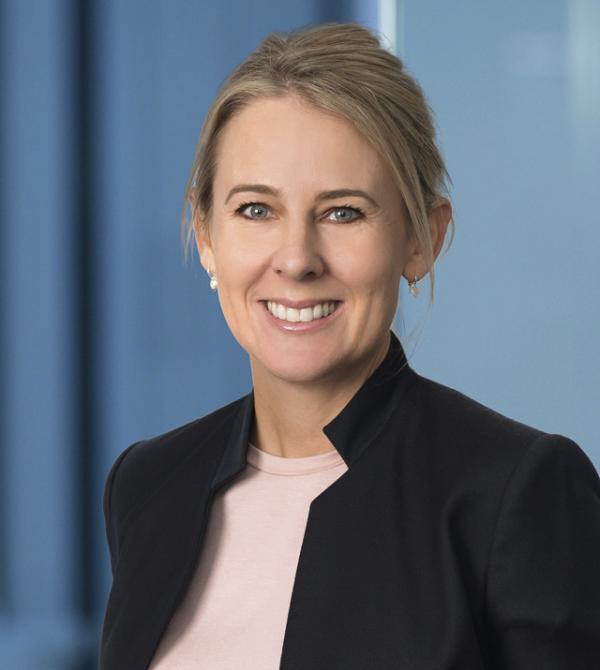
Despite best intentions, it is impossible to entirely negate the risk of conflict arising from a family trust. By their nature, trusts tend to span several decades and “futureproofing” them against societal changes, unforeseen family circumstances and the views of as-yet unborn beneficiaries presents a challenge to the most competent draftsman. That said, and in the Cayman Islands at least, it is possible to minimise the opportunity for disputes by identifying potential flashpoints when setting up a trust and building in various protections against conflict.
Trusts: a constant in a changing world
Trusts remain a popular way to preserve family assets and to control how, when, and how much wealth is passed down to future generations. Settling assets on trust can also serve important asset protection functions, so long as the trust is not established with the intention of defrauding creditors and the settlor does not reserve to himself unrestricted powers to revoke the trust or otherwise recover the trust assets. Transferring assets to a trustee on the terms of a discretionary trust can serve to ensure that the assets are not available to the creditors of the settlor, and that the assets are protected in the event of family breakdown among members of the beneficial class.
The Cayman Islands offer many advantages to global families: its legislation is continually updated in line with the market and evolving international rules, supported by a well-developed ecosystem of lawyers, professional fiduciaries, and specialist judiciary. The jurisdiction is also tax-neutral and values privacy highly.
In terms of the types of trusts on offer, traditional discretionary trusts (whereby the trustees have wide powers to administer the assets and to distribute them at their discretion) remain at the heart of most family structuring within the Islands and are well suited to succession planning, particularly where it intended that beneficiaries should immediately benefit from trust assets e.g. living in trust properties or funding day to day expenditure, whilst still protecting assets for future generations.
Cayman law also provides for “STAR” trusts, which can be established for purposes rather than persons if certain requirements are met. A STAR trust offers further protection in two ways. Under a STAR trust, the right to receive trust assets and the right to request information and enforce the trust are separated, with the latter rights vested in the enforcer. It is therefore possible to establish a trust without beneficiaries meaning there are no claims of the trust fund and no one with a hope or expectation of benefitting. Secondly, if beneficiaries are appointed, their rights to information or to challenge the trustee’s decision-making are minimal, thereby protecting trust assets from speculative or vexatious claims and preserving the value for all beneficiaries. STAR trusts have therefore become a vehicle of choice for holding operating companies in such a way as to limit trustee involvement in the underlying business or to collect and protect family heirlooms or collections.
Prevention is better than cure
A trust deed is usually drafted in broad terms which strike an appropriate balance between the settlor’s desire to retain control or remain involved in trust investments and the trustees’ ability to have flexibility to adapt to a variety of unknown situations. The details are usually contained in a contemporaneous letter of wishes which is confidential to the trustees. Whilst a letter of wishes cannot direct or bind the trustees it will provide them with invaluable guidance as to the settlor’s intentions at the time of setting up the trust. If drafted thoughtfully, it is a valuable tool for preventing or mitigating disputes.
Before putting pen to paper, the intended settlor must think carefully about what they want to achieve and who they wish to benefit. Ideally, this will form part of a wider consultation process with family members and professional advisers and include a frank appraisal of potential flashpoints and how these can be avoided.
The path to independence
Settlors often wish to motivate their children to be financially self-sufficient and appreciate the value of money and by preventing lifechanging sums reaching them at too young an age. Trusts can help to protect beneficiaries from themselves or unscrupulous individuals. However, without a proper appreciation of trust benefits, beneficiaries might feel that the older generation are seeking to control or influence behaviours from afar which can quickly become a source of contention.
Education and communication are therefore key on this front. It can also help to have an advisory committee, distinct from the trustees, to act as the first port of call for beneficiaries seeking distributions for specific purposes, whether that is seed capital for a business or assistance with the purchase of property.
Playing favourites
Experience dictates that perceived unfairness between siblings is the single greatest catalyst for conflict. This creates difficulties because equality means different things to different people. A settlor may consider it “fair” for children who have actively participated in the family business to receive a greater percentage of the wealth they have helped generate, leaving those who have sought an independent (and perhaps no less successful) path feeling aggrieved. There may be a disparity between the treatment of children of first and subsequent marriages (who may benefit differently from the settlor’s wealth during his/her lifetime) or in blended families where the settlor is keen to favour their bloodline over stepchildren.
Whilst there is not a universal approach to resolving these difficulties, the settlor should ensure that trustees are given appropriate powers to deal with future conflict in the family. This might include express powers to partition the trust or transfer assets to a separate trust to enable a clean break between warring siblings; a power to compromise claims against the trust; and powers to add or remove beneficiaries. Additionally, a settlor may want to provide that any beneficiary who challenges a trust loses their entitlement under it.
Generation game
As the Great Wealth Transfer gathers pace, intergenerational conflicts are coming to the fore as the younger generation prepare to take more of a role in the creation, preservation and management of their familial wealth. For example, the assimilation of the next generation into the family business can also pose substantial challenges if it is not carefully managed with a guiding hand. Disagreements about the nature and degree of involvement and the point at which control is handed over can quickly spill over into a wider conflict. Alternatively, the younger generation may not want to bear the burden of being the custodian of family wealth or feel the pressure to continue the family business.
Tensions can also arise if the younger generation wish to disavow their family wealth entirely, particularly with other beneficiaries who have grown up with an expectation of financial security. At the other end of the spectrum, beneficiaries might wish to be more heavily involved in trust decisions pushing for example for investment into new and exciting (but potentially more volatile) asset classes, such as crypto or AI or ensuring that the fund is invested ethically. In cases such as these, there are ways to protect the family assets which their parents or grandparents worked so hard to procure whilst giving the younger generations the freedom they need, without risking the entirety of the trust funds.
The role of trustee
Finally, careful thought should be given as to who to appoint as trustees. If professional trustees are to be appointed, it is crucial that they are brought into the structuring process at an early stage to ensure that they are comfortable with the terms of the trust and to enable them to build rapport with the settlor and beneficiaries. If family discord already exists, trustees must be open about their appetite for dealing with conflicts up to and including litigation (as well as having a sensible approach to dispute resolution).
Conclusion
Cayman Islands trusts are known to be backed by extensive legislation prescribing their proper administration, supported by a depth of skill and talent within the local trusts industry. A respected and efficient judiciary stands at the ready to assist with resolving points of contention if sensible discussions do not. With this ultimate safety net supporting the careful considerations outlined above, strong strides can easily be made towards effective conflict minimisation for families who choose the jurisdiction.

Bernadette Carey is a partner at Carey Olsen
D +1 345 749 2025
C +1 345 936 1012
E bernadette.carey@careyolsen.com


